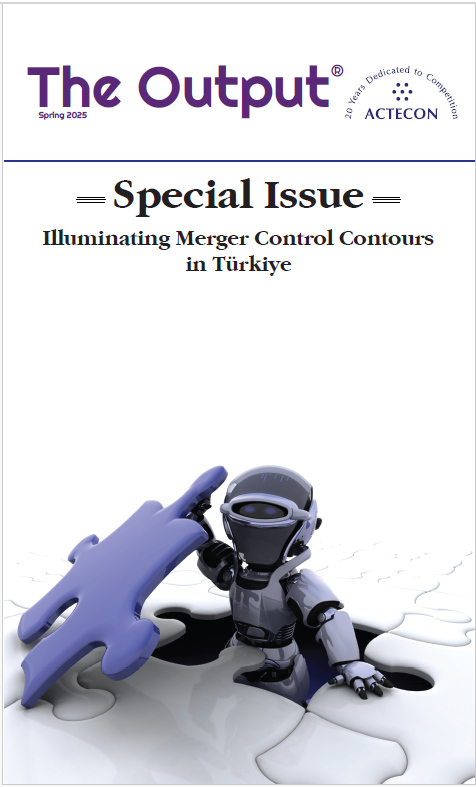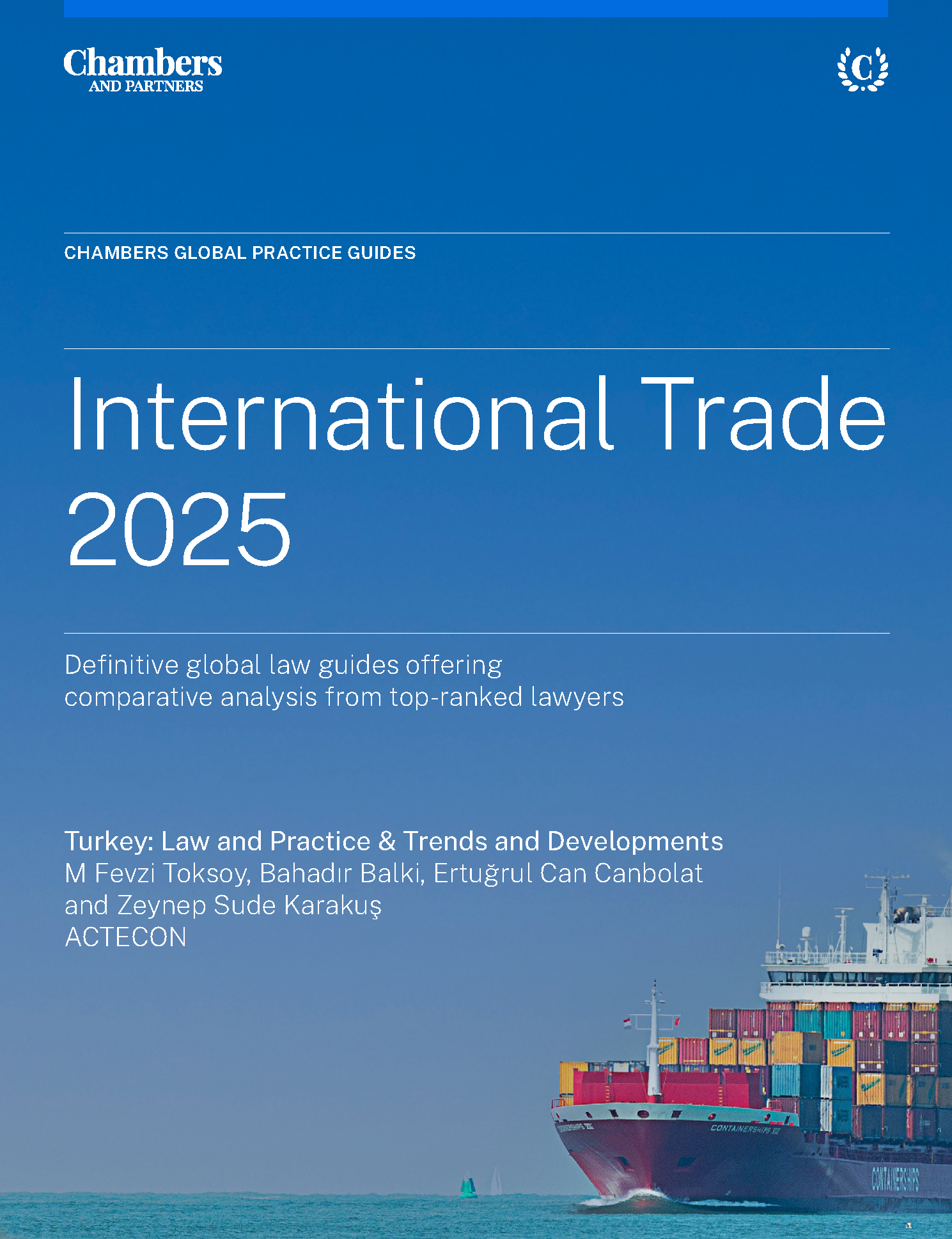Turkish Competition Authority Has Published the Preliminary Report on the E-Marketplace Sector Inquiry: Legislation is Around the Corner
| Competition Law

Turkish Competition Authority Has Published the Preliminary Report on the E-Marketplace Sector Inquiry: Legislation is Around the Corner
Article by Mustafa Ayna, Özlem Başıböyük, and Bahadır Aslan
Recent developments in digitalization have triggered the Turkish Competition Authority (“TCA”) to scrutinize more closely e-marketplace business models. The TCA has carried out a sector inquiry on e-marketplaces for this purpose and a preliminary report (“Report”) has been published on the official website of the TCA on May 7, 2021, in which a wide range of comprehensive analyses are included as to the operation of e-marketplaces in Turkey.
The sector inquiry has been aimed to address all competitive and anti-competitive effects stemming from e-marketplace business models. In this context, the Report has focused on (i) understanding how e-marketplaces operate and (ii) identifying the points giving rise to effective and/or distorted competition in this sector. Accordingly, it has offered significant policy recommendations in order to form a framework to eliminate the relevant concerns. Bearing in mind that this Report is not final, the views and comments of the stakeholders will be welcomed by the TCA until July, 9 2021.
A Nutshell Review of the Development of E-commerce in Turkey
The Report provides that e-commerce volume in Turkey was TRY 136 billion in 2019, and TRY 91 billion for the first six month in 2020. In this respect, while the share of e-commerce within total trade volume in Turkey was 8.1% in January 2019, this rate has increased to (i) 11.7% as of January 2020 and (ii) to 17.4% as of June 2020. It was further underlined that e-marketplaces made a significant growth in the first quarter of 2020 as a result of the COVID-19 epidemic.
In the light of these data, it was found that e-marketplaces will be an indispensable part of retail trade especially with the effect of consumer behaviour that has changed as a result of COVID-19 epidemic, and Turkey will be among the countries with the highest potential in this transformation.
An Overview of the Current Situation in the Sector
Considering the data obtained from several e-marketplace platforms, consumers and third-party sellers, the TCA has shared remarkable insights on the situation of the sector.
In this context, firstly, it was determined that consumers distinguish e-marketplaces from other online sale channels. Thus, it was considered that these platforms do not face any competitive pressure from other online sale channels in terms of customer preference. The finding that small number of e-marketplaces are preferred for purchases although there are multiple alternatives is also quite remarkable. Main reasons for this were considered as “security concerns” and “habits” respectively:
Figure 1: Reasons Why Consumers Prefer Limited Number of Platforms for Purchases (%)

Another significant finding is the fact that e-marketplaces are considered as main online channel by the sellers. Indeed, considering the survey conducted by third party sellers from these platforms, it was determined that the turnover of a significant number of sellers is highly dependent on e-marketplace sales:
Figure 2: The Proportion of E-Marketplaces within the Internet Channel Sales Made by the Sellers

Moreover, the Report provides various analysis on the position of the players in the market. As a result of comparisons conducted in the different categories, it was stated that four platforms are at the forefront in the sector, namely Trendyol, Hepsiburada, GittiGidiyor and N11. In light of many considerations including their market shares, Trendyol was seen to be the leader player dominating the market along with Hepsiburada. Crucially, while Trendyol has a partnership with Alibaba, GittiGidiyor with eBay and N11 with Korean company SK Group, Hepsiburada is a platform being totally local.
At this point, considering the market share and concentration levels of the platforms, it was highlighted that Trendyol has further improved its market leadership in 2020.In this context, it has been concluded that the tight oligopolistic structure of the market has strengthened, and the market share asymmetry has become increasingly clear due to the increase in the concentration levels. Thus, it has considered that this situation may trigger mergers and acquisitions in the sector to ensure the competition among other undertakings.
Structural Deficiencies in the Market Have Been Determined!
In the Report, high barriers to entry and expansion in the market and tipping in the market were listed as significant structural deficiencies. The most prominent structural market entry barriers were put forward as (i) network effects, (ii) consumers’ tendency to prefer one single resource, (iii) cost advantage ensured by economies of scale and scope, and (iv) data advantage.
In this context, it was stated that although e-marketplaces are currently in the beginning of their growth process, the network effects can be felt even in the current situation. Thus, strong network effects are considered to be an obstacle for a platform, which will enter the market, intending to reach out considerable number of customers and sellers.
Tipping in the market was considered as another structural deficiency. In the case of tipping, positive feedback loops may contribute to the increase in the pace of concentration in the market and thus result in the risk of an oligopolistic market. The Report evaluates it is not the case for the current situation of the market yet points out the potential risk.
What are the Main Competitive Concerns Arising out of the E-Marketplace Practices?
In the Report, the main competitive concerns arising out of the e-marketplace practices were evaluated within three headings namely (i) inter-platforms competition, (ii) intra-platform competition and (iii) consumer concerns.
With respect to inter-platforms competition, a special scrutiny was given to most-favoured consumer (“MFC”) clauses and exclusivity conditions. In this context, the Report firstly underlines that the wide MFC clause has the capacity to hinder effective competition which is essentially driven by commission rates among e-marketplaces. Secondly, in the event that the wide MFC clause is applied in particular by the gatekeeper marketplaces, the risks were highlighted as; (i) sellers’ incentive to apply different prices and conditions on different channels may be undermined, (ii) competitor e-marketplaces’ incentive for engaging in the price competition may be harmed, (iii) adoption of this practice by the competitors may give rise to price rigidity and anti-competitive cooperation in the market. Lastly, although an undertaking which is new to market may make an attractive offer by applying low commission prices, the fact that it would not gain a market share would force it to exit the market. In the light of these, the Report stresses that wide MFC clause may prevent entry and expansion in the market, and thereby lead to decreased competition in the market and consequently increase concentration in the market.
Moreover, it was also highlighted that exclusivity conditions to be applied on the sellers by the gatekeeper platforms may undermine multiple access and thereby harm inter-platform competition. When it is the case, it was considered that the presence of such practices may trigger even more concentration in the market, which is already concentrated as is due to its nature.
With respect to intra-platform competition, the first concern indicated is the discrimination between the sellers operating in the marketplace, such as (i) self-favouring of own products/services or that of certain sellers’ in terms of product/seller listing by the platform, (ii) using of third-party sellers’ data collected by marketplaces in their own favour or against third-party sellers and blocking third-party sellers’ access to this data and (iii) rejecting the access to their platforms, certain services in relation with their platforms (logistic/delivery etc.) and/or other services found in their ecosystems.
The second concern raised in the Report regarding intra-platform competition is that, even though those are not in the dominant position, they may engage in some unfair commercial practices (such as excessive pricing and unfair contract conditions) for the sellers through their asymmetric bargaining power against third-party sellers. It was stated that this asymmetric bargaining power may grant marketplaces the opportunity and capacity to unilaterally determine commercial conditions; while it may create significant uncertainty and commercial risk for the sellers who are exposed to it.
With respect to consumer concerns, it was stated that main concerns likely to have a direct impact on consumer welfare are in relation to price, consumer dependence and loyalty, data and innovation. In line with the current concentration of the market and the increasing dependence of consumers to prominent platforms, TCA highlights that marketplaces may be incentivized to (i) raise prices on their platform to increase profits, (ii) direct consumers to higher-priced sellers with marketplace rankings, and (iii) cause consumers to come across higher prices resulting from the MFC and such other practices. According to the Report, these would limit the ability of third-party sellers to charge lower prices on their own websites or other platforms.
What is the Remedy to Eliminate These Concerns?
The Report aims to ensure that the benefits created by e-marketplaces in terms of both consumers and sellers are preserved in the long term by effective policy tools. In this regard, the Report highlights the policy recommendations for relevant competition concerns in three main complementary groups. The first tool recommended is the strengthening of the secondary legislation for e-marketplaces, in order to clarify and reinforce the implementation of the Law on the Protection of Competition No. 4054 (“Competition Law”). The Report’s findings indicate that such an update is mostly required in terms of the MFC and exclusivity practices performed by these platforms. Another requirement for an update in the secondary legislation is put forward on the exploitative practices of the platforms. Such practices are exemplified in the Report as excessive data collection and privacy concerns and unfair contract terms/unfair commercial practices.
The Platform Code of Conduct, being the second policy recommendation, targets to address the asymmetric bargaining power hold by e-marketplaces. In this regard, the Report suggests a regulation, which is aimed at ensuring “objectivity”, “transparency”, “openness" and "foreseeability" by combination of rules focusing on the contracts between the sellers and the platforms.
Thirdly, it was stated that legislative work is currently being carried out in order to determine which platforms qualify as gatekeeper in the digital markets and the conducts they are obliged to avoid. Furthermore, independently of the notification thresholds set forth in the Communique No. 2010/4 Concerning the Mergers and Acquisitions Calling for the Authorization of the Competition Board, the Report suggest that all the mergers and acquisitions to be realized by the gatekeepers should be notified to the TCA.
Final Remarks
The Report has tried to provide a clear picture of the e-marketplace practices in Turkey in competition law aspects. With the main three policy recommendations, namely secondary legislation, Platform Code of Conduct and an ex-ante regulation for gatekeepers, it is aimed to eliminate identified competitions concerns and ensure effective competition in the sector. Once the pronounced policies take their final shape, there is no doubt that a well-defined framework will be drawn up to address the competition concerns in the e-marketplace sector.







